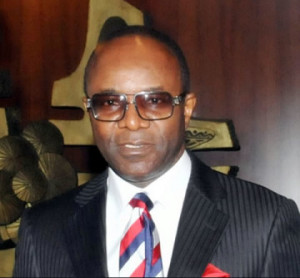
As OPEC prepares for talks on eliminating a global crude glut, Nigeria’s oil minister says he’s more concerned about the potential for U.S. shale suppliers to replace the lost barrels by ramping up their own output, quelling any price rally the producer club might achieve.
“The challenge is less with OPEC and more with the outer forces we don’t control,” Ibe Kachikwu, the country’s minister of state for petroleum, said Thursday in an interview in Tokyo. “The U.S. is beginning to ramp up volumes again.”
Nigeria is among nations at the sharp end of the global crude surplus. Prices are below its fiscal break even and surging U.S. shale production restricted its biggest export market to a fraction of what it used to be. The African country has also had to grapple with militant attacks on its oil infrastructure this year.
The Organization of Petroleum Exporting Countries meets Nov. 30 in Vienna to assign output quotas after agreeing on a framework deal in September.
Greater Worry
“My greater worry is less than OPEC’s ability to find unity in these issues, which I think we will, and more the fact of how much even a decision we make impacts the pricing issues,” Kachikwu said. Oil may rise only slightly above $50 a barrel if a consensus is reached, and could fall as low as $44 without a deal, he said. Benchmark Brent traded at $48.50 at 9:04 a.m. in London.
OPEC members have called for production cuts to boost prices that remain below half their level of mid-2014. They’ve been holding preliminary talks on how to share the burden of cuts to bring the group’s supply to as little as 32.5 million barrels a day.
Nigeria itself would be exempt from a deal since its production has suffered from a wave of militant attacks. The country aims to boost output to 2.2 million barrels a day by the end of the year from 1.9 million now, Kachikwu said.
